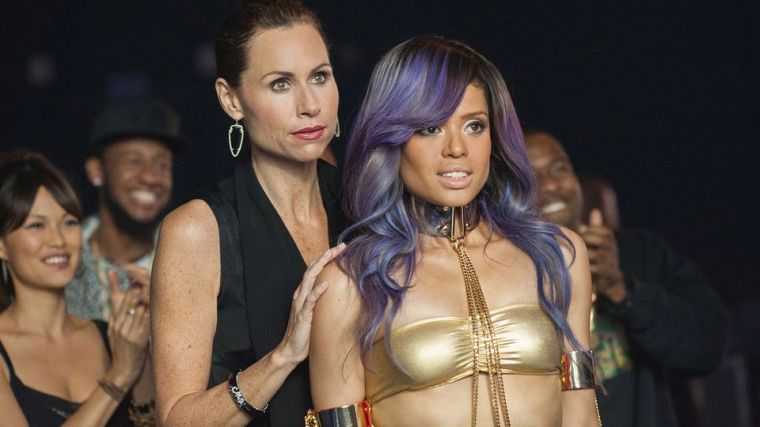I don’t think I’m saying anything controversial when I say that, on film, romance and romantic comedy have been dying slowly for a long time. Once a dominant force in the box office (2000’s What Women Want made $374,111,707 in theaters while Titanic made over $2 billion; for comparison, 2015’s Mad Max: Fury Road made $375,836,354 and Star Wars: The Force Awakens is still at just under $2 billion) and in industry awards (Shakespeare In Love beat out Saving Private Ryan and The Thin Red Line for Best Picture in 1999), the genre is now relegated mostly to little-seen indies that can be made on a strict budget or young adult novel adaptations. There are a lot of reasons as to why that may be, from a lot of shitty, high-profile movies that poisoned the well for many viewers to the tragic death of the mid-budget film in the rise of the ultra-blockbuster. But regardless of the reason, romance has spent the last fifteen years slipping quietly out of the mainstream, out of critics’ good graces, and, consequently, out of many viewers’ minds.
And that’s too bad! Romance is a fundamental, vital genre of storytelling that can say things about the human experience that other genres often struggle with. But even in these last 15 fallen years, there have still been a handful of exceptional romances (and romantic comedies!) that reminded me why the genre still matters. So, through the month of February (and maybe beyond), I’m going to be looking back at some of the 21st century’s fine, flawed, popular, and influential romance and seeing if we can find a way to bring the genre back into your good graces.

I’ll be starting with my pick for the finest American romance of the 21st century: Gina Prince-Bythewood’s Beyond the Lights. When I reviewed Beyond the Lights back in 2014, I was a little dismissive of the film. I loved every second I was watching the film, but, well… beautiful people meet, fall in love, run into an obstacle, get back together. It’s a formula we’ve all seen a hundred times, as I noted in that review. I mean, sure, you could say the same thing about basically every genre – on some level, that’s what genre is. Besides, I’ve argued once and I’ll argue again and again: Plot doesn’t matter. If you hand 10 people the exact same plot, you’ll get ten very different stories. But it was hard for me to fight that gut instinct: Sure, the movie is well-made, well-shot, beautifully-performed… but is it new? I lost that fight when I wrote my initial review, but the years – and many rewatches – since have helped me come to terms with the fact that Beyond the Lights is just a truly lovely film.
It is also a surprisingly grounded one. The movie’s most melodramatic scenes – such as when Kaz punches Noni’s recent ex-boyfriend on stage at the BET Awards to defend her honor – are grounded by the fact that Kaz was shown moments before coming off a shift as a police officer where he dealt with a rough domestic abuse call. As Noni and Kid Culprit act out their ‘sensual’ music video on stage, Kaz sees trigger after trigger, small abuse after small abuse; when Culprit strips and insults Noni on stage, his internal tension keeps building. What could be viewed as a fairly stock melodramatic scene instead becomes an look at how Kaz has been affected by his job and what that means for his future.
Meanwhile, it also plays into Noni’s arc as she comes to terms with the debasement the music industry often puts its beautiful young women through. The film is blunter with this story, but that’s in part because it does a lot more to drive the narrative. After a brief prologue introducing us to a surprisingly complex set of ideas – Macy as the single-mother who doesn’t know how to handle having a biracial child; Noni’s struggle to be taken as seriously as less-talented white children; Macy’s conflict between a being a brutally ambitious stage mom and being a lower class woman who understands what her daughter deserves with her level of talent – we first meet adult Noni in “Masterpiece,” a pitch-perfect music video in which Gugu Mbatha-Raw comes off as a forceful, sensual, a blunt symbol aggressively straddling the line between ‘lust object’ and ‘confident modern woman in charge of her own sexuality.’
It’s a hard veer into fantasy from the urgent realism of that opening scene. But that’s on purpose, as the remainder of the film is about the price she paid going from the film’s first scene to its second.
This price plays out mostly in little scenes throughout the film. A pleading glance Noni shoots her mother early in the film, at a photo shoot in which she’s asked to go topless, for instance, suggests a woman who deeply uncomfortable with the objectification she undergoes. But that scene has its roots in another, earlier scene, as we see Noni ‘put on her face’ when dealing with fans and even her own entourage – she’s alone in a sea of people, someone who feels invisible the more eyes are on this persona her mother invented for her. It’s no wonder the words that saved her life are, “I see you” – Noni can barely see herself anymore beneath the gold chains, purple weave, and fake nails. There’s nothing wrong with that look, of course, but it’s not her, it’s not who she is, and that’s the cost: She can be anyone, at the cost of being herself.
In my first watch, the biggest issue that really stuck out to me was Nate Parker’s Kaz. Kaz, a police officer seeking to take a turn in politics with grand ambitions, can often come across as, basically, the perfect man. He has a commanding, soft-spoken charisma that makes him seem steady and earnest – in another world, he’d make an amazing Captain America – without watering down his masculinity. It’s easy to confuse his confident, steadfast demeanor a a fantasy… and there’s a degree to which he is, certainly. But he’s also a character, flawed and seeking, in and of himself. He says some incredibly harsh things to Noni, not all of which are fair, and fails to recognize the degree to which his relationship with his father mirror’s Noni’s with her mother. He’s a Good Man – note: this is different from being a Nice Guy – but that doesn’t mean he’s without characterization. Parker and Prince-Bythewood find small ways to shade him in throughout the film, despite making sure this is firmly Noni’s story.
Prince-Bythewood made her name with 2000’s Love & Basketball, an expansive romance between two young basketball proteges navigating a tricky world of compromise as they grow up together. Love & Basketball is a bigger, more ambitious film than Beyond the Lights, but I think the newer film is more nuanced and approachable. Still, both are legitimately excellent films, the sort of thoughtfully mature, entertaining dramas that the world, frankly, could use more of.
Except, well… Beyond the Lights didn’t really make much of a splash. Oh, it was profitable, but hardly a hit. There was some loose chatter about awards from some sharper critics looking for a wildcard come Oscar-time, but that was never likely, as even the film’s partisans admitted. It was a thoughtful, beautifully made, wonderfully acted drama that for whatever reason simply didn’t connect with people at the time.
I have my own theories as to why that is, which I’ll hopefully be diving into over the course of this series. There are still some bastions of popular romance on film – from the bad (50 Shades of Grey) to the excellent (Brokeback Mountain) – and I don’t plan on ignoring that, either. When I say that romance is dead, I am, admittedly, exaggerating a little bit. Romance isn’t dead, it’s just severely scaled back; rather than the home for our biggest stars and most promising up-and-coming directors, it’s a place for newcomers working on a budget to prove themselves, a chance for young stars to try something weightier than a green screen. There’s nothing wrong with that… except, I suspect, that it helps excellent films like Beyond the Lights go largely unnoticed by communities that may very well have eaten it up twenty years earlier.
Beyond the Lights is available streaming on Netflix, or for purchase on DVD, blu-ray, or VOD. Written and directed by Gina Prince-Bythewood, Beyond the Lights stars Gugu Mbatha-Raw and Nate Parker.

